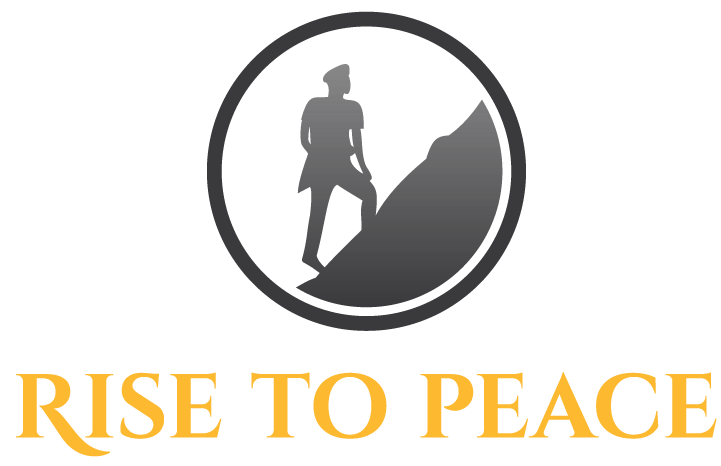Wednesday, December 11 @ 6:00 pm – 8:00 pm
The Elliott School of International Affairs
1957 E Street NW
Lindner Family Commons — 6th Floor
Washington, DC
Afghan laborers enjoy tea on a roadside after a day’s work in Kabul, Afghanistan, Saturday, July 30, 2011. The war-torn country still faces the challenges of poverty, unemployment and a lack of infrastructure. (AP Photo/Dar Yasin)
Rise to Peace is presenting a compelling panel on the future of Afghanistan’s political environment on December 11, 2019, from 06:00 pm to 8:00 pm at the Elliott School of International Affairs of the George Washington University.
Experts will contend with domestic questions such as the delayed result of the presidential elections as well as the increase in Taliban-linked violence in the country. Relations between Kabul and Washington —stalled peace talks, recent prisoner swap with the Taliban, U.S. troop withdrawal and paths forward — will feature prominently and lead to valuable discussions. Rigorous discourse over the role of regional actors, including Pakistan, Russia and China, will investigate their possible motivations for enhanced dialogue with Kabul as well as the Taliban. The investigation into ISIS activity within Afghanistan and if any lessons learned from the wider counterterror operation against the group could be applied to the country will be addressed. Hear from distinguished experts as they discuss the possibilities and challenges involved in the country’s resolution towards peace and its goal to implement a democratic model by 2020.
Speakers

Jonathan S. Landay
NATIONAL SECURITY CORRESPONDENT, REUTERS
Jonathan S. Landay, an award-winning journalist is a senior national security correspondent for Thomson Reuters. When worked with McClatchy/Knight-Ridder, Landay was ambushed with U.S. Marines in a remote village in Kunar province of Afghanistan and survived the Battle of Ganjgal. He is featured in a new film, “Shock and Awe,” Rob Reiner’s latest political drama chronicling a group of journalists working for Knight Ridder newspapers in the buildup to the 2003 invasion of Iraq. In his current post, he covers terrorism, nuclear weapons, and arms control policies, with a close focus on US foreign policy toward Afghanistan, Pakistan and Iran. He frequently visits Afghanistan, where he travels unilaterally and embeds with US and Afghan forces. Landay has spent much of his 30 years career on the ground chronicling ethnic, religious and political conflicts in Asia, the Middle East, and the Balkans. He covered the Soviet occupation of Afghanistan, the 1989 Tiananmen Square massacre in China, the wars of former Yugoslavia, the Sept. 11 attack, the 2001 US-led intervention in Afghanistan and the 2003 invasion of Iraq.

Said Sulaiman Ashna
JOURNALIST, VOICE OF AMERICA
Said Sulaiman Ashna is an award-winning Afghan-American journalist covering Afghanistan for over a decade. Mr. Ashna is a TV/Radio reporter at Voice of America, a News Writer/Editor with TOLO TV of Afghanistan, and a Group Program Manager at Arman FM 98.1. Formerly worked as the Assistant Managing Director and a News Director at Shamshad TV and as well as Managing Editor and Editor-in-Chief at Lemar TV.

Dr. Marvin G. Weinbaum
DIRECTOR, AFGHANISTAN AND PAKISTAN STUDIES, MIDDLE EAST INSTITUTE
Dr. Marvin G. Weinbaum is the Director for Pakistan Studies at The Middle East Institute. He has experience working at the University of Illinois and the U.S. Department of State’s Bureau of Intelligence and Research. He worked at the University of Illinois for 15 years as the director of the Program in South Asian and Middle Eastern studies, focusing on national security, democratization, and politics of Afghanistan and Pakistan. He has contributed to the publication of 6 books and has written more than 100 journals and articles. He has also served as a Senior Fellow at the United States Institute of Peace and was awarded a Fulbright Research Fellowship for Egypt in 1981–82 and Afghanistan in 1989–90. Areas of expertise include state-building, political culture, political economy, and national security in Pakistan, Afghanistan, and Iran. Dr. Weinbaum has a BA from Brooklyn College, an MA from the University of Michigan, and a Ph.D. from Columbia University.

Ahmad Shah Mohibi
FOUNDER, RISE TO PEACE
Ahmad Shah Mohibi is the founder of Rise to Peace. Ahmad previously spent over a decade assisting the US mission to rebuild Afghanistan. First, he aided the United States Army in various capacities to train and equip the Afghan forces. He later acted as an advisor with the State Department in the establishment of the Justice Center in Parwan and facilitated the transfer of detainees set to face the special tribunal. Ahmad retains links with the US and Afghan governments to provide expertise and insight on all Afghan-related subject matter, primarily the peace process with the Taliban. He is often consulted to provide analysis in the media. Ahmad remains an active human rights campaigner through his support for community engagements around the world and his involvement with diverse humanitarian causes. President Obama and President Karzai have recognized his achievements. He holds a Master in International Policy and Practice from George Washington University and a BA in Government and International Politics from George Mason University.

Michael R. Sherwin
ASSISTANT UNITED STATES ATTORNEY, U. S. DEPARTMENT OF JUSTICE
Michael R. Sherwin, an Assistant United States Attorney with the U. S. Department of Justice, has extensive experience in national security investigations and counterterrorism cases. Prior to becoming a federal prosecutor, Michael was an intelligence officer in the U.S. Navy, where he served throughout the Middle East in support of Operation Enduring Freedom (Afghanistan) and Operation Iraqi Freedom.

Kristyn Hartwyk
WORLD BANK





























